 W
WAffrilachia is a term that focuses on the cultural contributions of African American artists, writers, and musicians in the Appalachian region of the United States. The term "Affrilachia" is attributed to Kentucky-based writer Frank X Walker, who began using it in the 1990s as a way to negate the stereotype of Appalachian culture, which portrays Appalachians as predominantly white and living in small mountain communities. Walker is also the man who jump started Affrilachia, and could be said to have made this word global. The term Affrilachian stands for an African American who is a native or is a resides in the Appalachian region. Affrilachia is also the title of Walker's 2000 book of poetry, published by Old Cove Press.
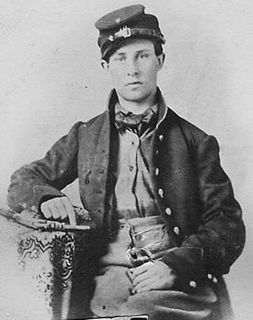 W
WBilly Yank or Billy Yankee is the personification of the union United States soldier during the American Civil War. The latter part of the name is derived from yankee, a slang term for New Englanders. Although little evidence exists to suggest that the name was used widely during the Civil War, early 20th century political cartoonists introduced 'Billy Yank' to symbolize U.S. combatants in the American Civil War of the 1860s.
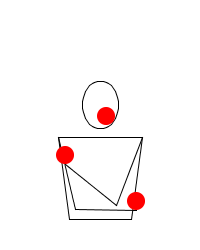 W
WIn toss juggling, a claw is a trick where the hand throwing or catching a ball is turned upside down so that the palm of the hand faces the ground. The effect is that of the jugglers hand appearing to snatch the ball out of the air. A claw can be juggled as an isolated trick, or be incorporated into an already existing juggling pattern. For example, the Boston Mess can be juggled with each right hand throw as a claw. The resulting pattern in known as cherry picking.
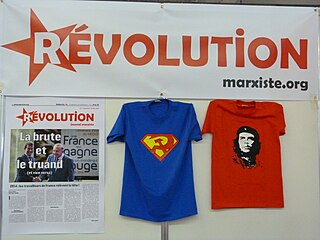 W
WCommunist chic are elements of popular culture such as fashion and commodities based on communist symbols and other things associated with Communism. A typical example is T-shirts and other memorabilia with Alberto Korda's iconic photo of Che Guevara.
 W
WThe eyebrow flash is an unconscious social signal, a raising of the eyebrows for about a fifth of a second that communicates a wish to approach another whom the sender recognizes and is preparing for social contact. People generally return an eyebrow flash, unless they do not recognize the sender, or the sender looks away immediately after. The message must be interpreted in context. Psychologists and sociologists say that eyebrow raising can be a reaction to fear or surprise.
 W
WA fan club is an organized group of fans, generally of a celebrity. Most fan clubs are run by fans who devote considerable time and resources to support them. There are also "official" fan clubs that are run by someone associated with the person or organization the club is centered on. This is the case for many musicians, sports teams, etc.
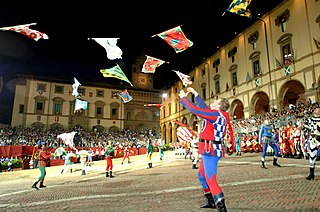 W
WThe art of flag throwing dates back to medieval guilds. A guild's banner or flag was considered a symbol of purity, and as such it was not allowed to touch the ground.
 W
WIn toss juggling, a flash is either a form of numbers juggling where each ball in a juggling pattern is only thrown and caught once or it is a juggling trick where every prop is simultaneously in the air and both hands are empty.
 W
WGikII is a series of European conferences on the intersections between law, technology and popular culture. It is hosted at a different institution every year. The first conference was in 2006 and was held in Edinburgh, and was organised by Lilian Edwards and Andres Guadamuz.
 W
WHaggis and Charlie are a comedy juggling act formed in 1984 by Haggis McLeod and Charlie Dancey. They learned their skills together at the Walcot Village Hall juggling workshop in Bath, England. Their first performance was a busking show that took place on the waterfront of Bristol Docks. Haggis and Charlie performed regularly on the streets of Bath in their early years together. They have been seen almost every year at Glastonbury Festival and became something of a tradition at the Winchester Hat Fair.
 W
WCalling „Helga!“ is a running gag at German concerts and festivals.
 W
WThe International Clown Hall of Fame and Research Center (ICHOF), located in Baraboo, Wisconsin, United States, is dedicated to the preservation and advancement of clown art and achievement. Represented by professional and amateur clown associations, it pays tribute to outstanding clown performers, operates a museum of clowning with resident clown performers, conducts special events, and maintains a national archive of clown artifacts and history.
 W
WThe Journal of Popular Culture (JPC) is a peer-reviewed academic journal that publishes academic essays on all aspects of popular or mass culture. It is published six times a year, printed by Wiley-Blackwell. The editor is Ann E. Larabee. One of the cofounders was Jack Fritscher.
 W
WCompetitive or sport juggling may range from friendly and silly games to competitive sports. Most juggling conventions include friendly games such as endurance and gladiators. Since 1969, the International Jugglers' Association (IJA) has held annual stage championships, judged both on technique and presentation. The stage championships have three categories: Individuals, Teams and Juniors. First, second and third-place winners in the Stage Championships are awarded medals and money prizes. In addition the Numbers Championships awards Gold medals to those who demonstrate that they can juggle the most balls, clubs or rings for the most catches.
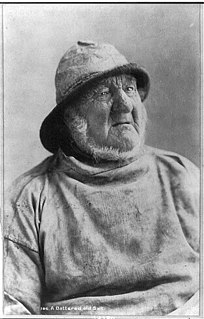 W
WAn "old salt" is an old sailor or mariner who tells oral history and sea stories. Sometimes deemed a sage within their domain, and while sometimes a raconteur, much of the history and traditions of mariners are passed from generation to generation as told and retold by old salts. Their factual oral histories and fictional sea stories often intermingle and thus may overall be truthful, half-true, or fiction. Each narrative told by an old salt tends to have the aim of enhancing the reputation of the old salt, the old salt's companions, or the old salt's forbearers, although they may also tell instructive tales of tragedy.
 W
WPhonebooth stuffing was a fad that involved a number of people consecutively entering a telephone booth, until the point where the phonebooth would accommodate no more, or there were no more individuals available. By early 1959 the fad had spread to Durban, South Africa; Southern Rhodesia; Britain; Canada; and the United States.
 W
WPig Beach located on Big Major Cay is a beach on an uninhabited island located in Exuma, the Bahamas. The island takes its unofficial name from the fact that it is populated by a colony of feral pigs which live on the island. It has become a tourist attraction in modern times.
 W
WPigeonholing is a process that attempts to classify disparate entities into a limited number of categories.
 W
WThe rolling globe or walking globe is a circus skill in which a performer balances atop a large sphere. Various gymnastic or juggling stunts may be performed while the performer moves and controls the position of the ball with their feet and/or hands.
 W
WRoman ladders are an equilibristic circus skill where four or more people perform acrobatics on specially made ladders. The performers in the middle push the ladders out, while the performers on the outside of the ladders perform various poses and tricks.
 W
WIn toss juggling, Rubenstein's Revenge is a 3-ball juggling pattern named by George Gillson after its inventor, Rick Rubenstein. Along with Mills' Mess and Burke's Barrage, it is one of three well-known named juggling patterns that involve complex carries and crossed arm throws. Rubenstein's Revenge is usually considered the most involved and difficult of the three.
 W
WScreen Rant is an online infotainment news website which offers news in the field of television, films, video games and film theories. Screen Rant was launched by Vic Holtreman in 2003, and originally had its primary office in Ogden, Utah. Screen Rant has expanded its coverage with red-carpet events in Los Angeles, New York film festivals and San Diego Comic-Con panels. The associated YouTube channel has over 7.9 million subscribers and over 3,800 videos. The channel also posts Pitch Meeting videos by Ryan George that each have at least several hundred thousand views.
 W
WA standing ovation is a form of applause where members of a seated audience stand up while applauding after extraordinary performances of particularly high acclaim. In Ancient Rome returning military commanders whose victories did not quite meet the requirements of a triumph but which were still praiseworthy were celebrated with an ovation instead, from the Latin ovo, "I rejoice". The word's use in English to refer to sustained applause dates from at least 1831.